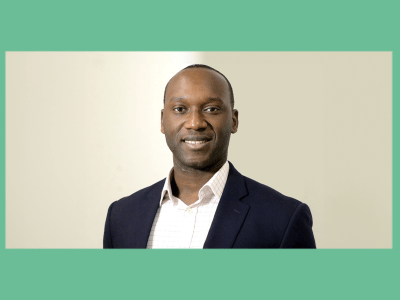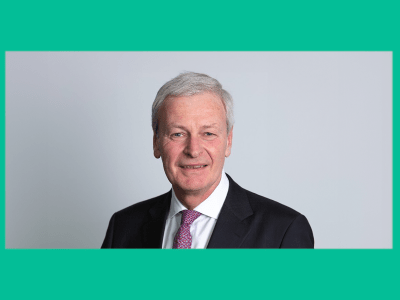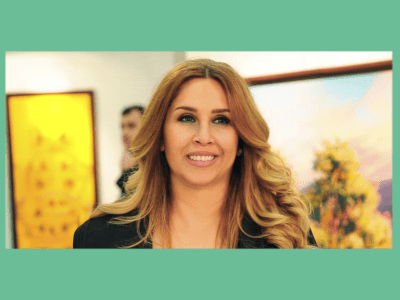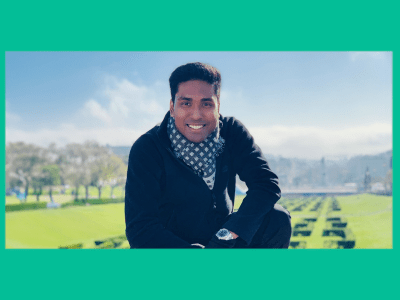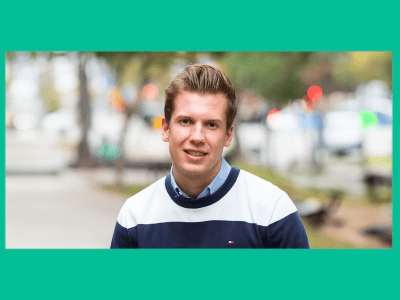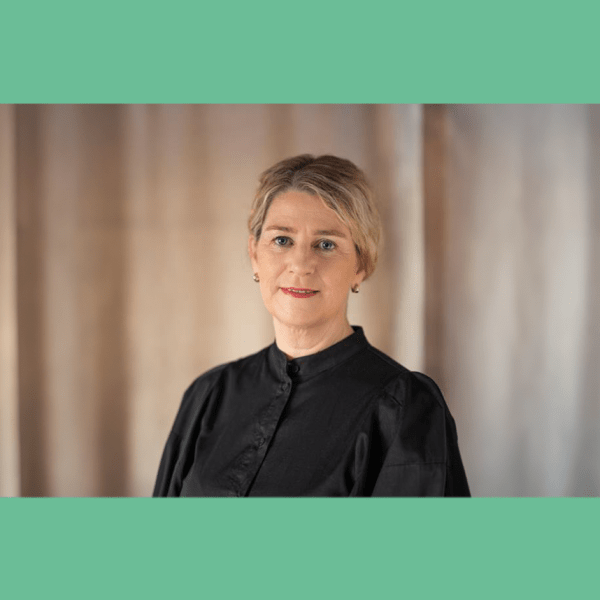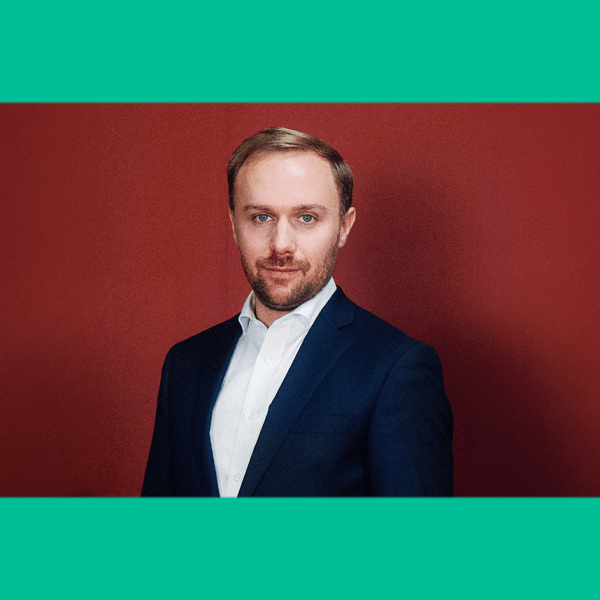Insights From Steve Davis, Senior Strategic Advisor to the Bill and Melinda Gates Foundation
Steve Davis, Senior Strategic Advisor and Interim CEO of China at the Bill & Melinda Gates Foundation, joined us for an insightful Learning from Leaders session in February 2021. Distinguished Fellow at the World Economic Forum and professor of social innovation at Stanford University, Steve recently published the book “Undercurrents: Channeling Outrage to Spark Practical Activism” highlighting how to capitalize on global trends to instigate and encourage change across the world.
In an hour-long deep-dive discussion with Peter Vanham, Steve offered insights into practical activism, the pros and cons of technological development and the effectiveness of public-private collaboration, based on his personal experience and learnings. He paid particular attention to how the COVID-19 pandemic has affected the world. Read on to discover some of the key learnings shared with EU students, alumni and guests.
Digital Development and COVID-19
In his book, Steve writes: “When the history of the pandemic is written, I expect that COVID-19 will represent a milestone in digital health”. The digital innovation in health and education has been phenomenal but quite incoherent, Steve remarked. There is a huge amount that we can learn from what has been done over the past year to combat the effects of the virus and its attendant economic and social effects.
For example, in China, the use of digital technology to trace the virus and disseminate reliable information has been incredibly effective. In addition, the dramatically increased availability of mental health apps and advances in telemedicine have given more people access to health services than ever before. However, these technological developments have not reached the low resource communities that need them the most. Nonetheless, these improvements could potentially extend to everyone, says Steve, adding: “I am very optimistic”.
Technology: A Force for Good?
In discussing the good versus evil dichotomy often used in conversations about technology, Steve quoted Klaus Schwab: “We have to get out of binary thinking about technology”. Aligning technology to either a dystopian or utopian future is not helpful. Instead, he said, “We have to start embracing it as a positive force for good but also being steely eyed in the way we work with it”, he added.
The net impact will be positive, Steve assured the audience. Across the history of technology, we have seen technology cause social issues, but also solve them. And it’s important to remember that 47% of the global population is still offline; “We forget this because we are so addicted”, Steve commented. To make sure that as our technological ability develops, it’s imperative that we focus on policy. “I am a big believer that we need to focus less on product innovation right now, and more on policy innovation”, Steve remarked.
A Moment for Progress
Reflecting on the past year, Steve said: “We are in a moment of incredible disruption globally, and a lot of things are being challenged.” Steve expressed his anxiety that, although we can use this moment as a kind of reset (something he is working on in several ways), there is a chance that the pressing desire to get the economy restarted will overshadow the need to reflect and build back better.
The COVID-19 pandemic, plus the humanitarian and economic crises evolving in its wake, have stopped or even regressed progress on many issues in society. The data, Steve said, is horrifying. Equity has suffered; Steve offered the example of inequal access to vaccines around the world. As we continue to learn from the responses and technologies developed to cope with the pandemic and its effects, equity needs to be a core part of the conversation. “It doesn’t solve the problem, but it is the first step”, Steve reminded the audience.
The existing model for coping with socioeconomic challenges is built around the idea that richer countries can help poorer countries. But that is no longer appropriate, in part because some of the people struggling the most are living in middle-income countries. Plus, we are no longer in the post-conflict moment of the late 20th century without the capacity and institutions needed to support people. It follows that a new framework is needed to support recovery and change. Steve also believes we need to devise tailored strategies to address issues as they arise or have arisen at a community level: “We have to be quite intentional with communities, giving them voice and agency to say how that is going to work in their community or in their particular setting”.
Steve reiterated that progress, however essential, is not inevitable: “We have to keep the conversation going and examine what we are doing”.
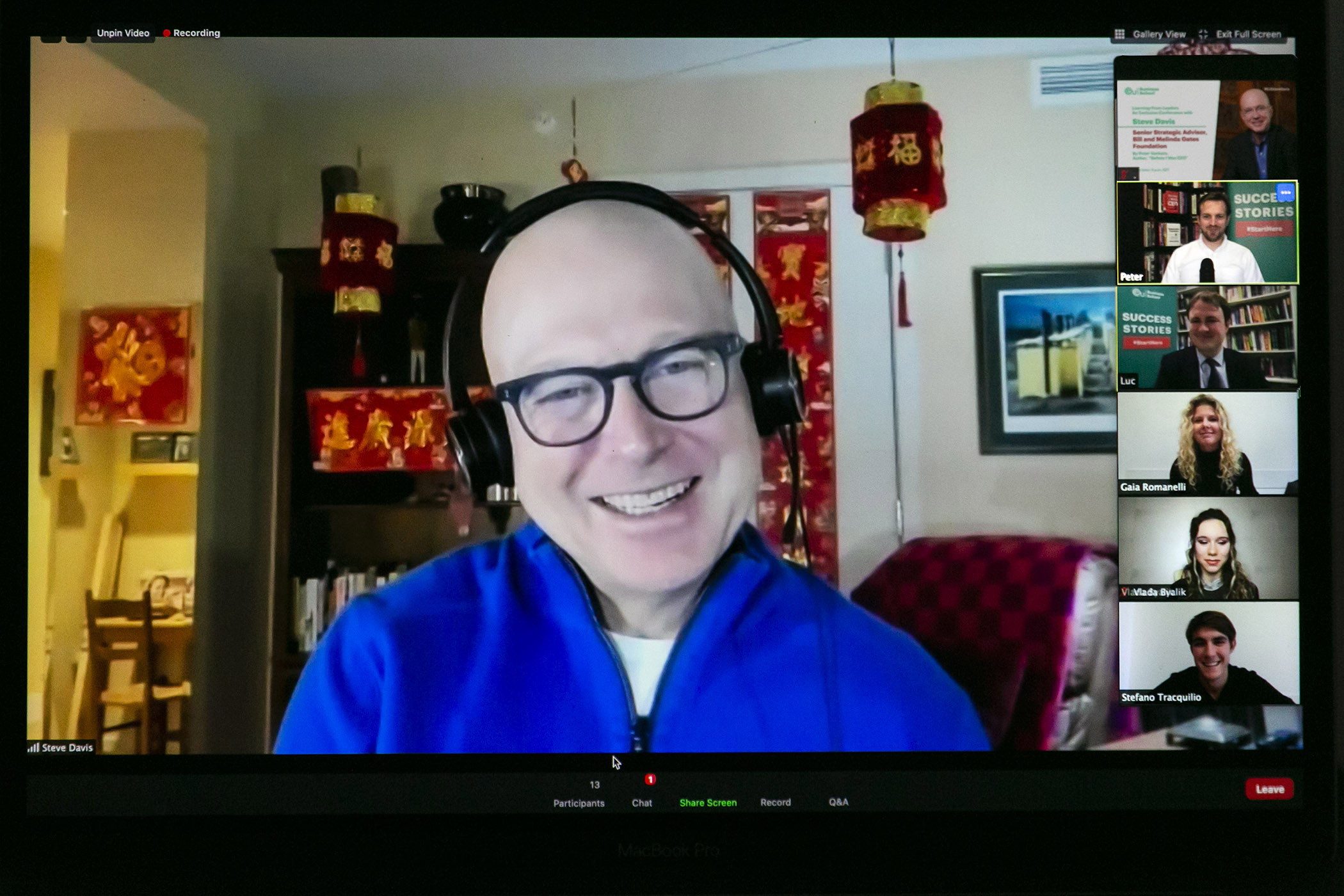
Where to Make Change
Steve was asked by a student attending the event what our biggest challenge is globally. “I think inequity is the biggest challenge facing the world”, he responded. And throughout the conversation, Steve spoke a lot about both inequity and climate change as existential crises that need to be solved in tandem.
However, while these are both major challenges, Steve suggested that we will have the biggest impact if we direct our energy and attention towards ensuring girls have access to education: “If you were to pick one thing that would change the world the fastest it would be educating girls.” This is because of the huge effect it has on health, financial security and political empowerment. We are making good progress – the number of girls being educated is growing – and, with collective effort, we can make sure that every girl around the world can access education.
Making Change Happen at Scale
To make change happen at scale, as Steve does through his work with the Bill & Melinda Gates Foundation, a collaborative approach is required.
Throughout his career, Steve has brought together private companies with public institutions to solve challenges facing society. One example of how he has done so is by convening a group of CEOs in Seattle, where he lives and works, including representatives from Microsoft, Amazon, Boeing and Starbucks. The group meets regularly with the overall aim to improve the region and make it a better place to live and work, for example by improving the education system or transport infrastructure.
In early February 2020, Steve met with the Seattle CEOs to set priorities for the year; Steve and another colleague working in the health space raised the subject of COVID-19. The virus was still not understood as representing a major threat. Nevertheless, the group took rapid action and within a week had organized themselves to map out a response to the pandemic in the region, working closely with local government. By bringing private sector businesses to work with public sector institutions and lend resources to the government, the state of Washington managed to flatten the curve of the virus comparatively well.
This is an example of how the continued collaboration between the public and private sectors is a productive and efficient way to tackle the major challenges that we face as a global society.
Advice for Change-Makers
Steve had some pertinent advice for the audience on how they can make change happen. “We can all participate in what I call practical activism”, he revealed. Firstly, “in order to channel your outrage to activism you need to find some optimism”. If you do not believe that the future you want to create is possible, you will struggle to muster motivation.
Secondly, “It’s about doing small things and working to solve simple pieces of problems”, he advised. It can be overwhelming to consider the scale of a problem like climate change, for example. However, he suggested: “Break it down into its pieces. Figure out what part you can solve given your expertise and go solve it”.
Steve reminded the audience to ask, “How do I make choices so that I can have the most effective impact?”, and let the answer guide your decisions. Leave your ego at the door and remember that, “Most of the world’s best activism happens around kitchen tables by people you will never know.”
Soft Skills are Essential: Listen to Learn
To be an effective activist, you need to cultivate listening and empathy skills; soft skills that are also essential for a productive and successful career.
Steve quoted Larry King: “I never learned anything while I was talking”. Listening carefully is important not just to understand the challenges that you are trying to solve, but to understand how a community sees the problem they are facing and their ideas for solving it. “I think the biggest challenge that big foundations, big NGOs and academics have is that we think we have the answer”, Steve reflected; “We spend way too much time talking and way too much time telling others how to solve their problems”. But if you take the time to listen, you will be humbled by the realization that the people you see as victims have agency and ideas; “Our job is to offer to help”, he said.
Empathy Through International Relations
Receiving an international education is a great way to develop empathy. Steve explained: “I think programs like you guys [EU students attending the event] are in – where you are actually engaging across cultures and across communities and thinking about it – are part of the process to understanding that there are truly different points of view.” He also suggested that it’s a good idea to “spend some time in a community that looks and feels different to your own, push yourself out of your comfort level; that will help you build empathy too”.
Whether you are starting your career or seeking a new direction, finding a multicultural community of similarly ambitious and forward-thinking people to learn alongside will be extremely beneficial. Building an international network and being exposed to global perspectives will develop essential soft skills, while a pragmatic approach to learning centered on case studies and simulations will ensure an up-to-date education that can be applied immediately in the real world. At EU Business School, these principles are core to how we teach. Find out more about our wide range of programs and prepare yourself with the knowledge, skills and mindset you need to find career success and have a positive impact on the world.


